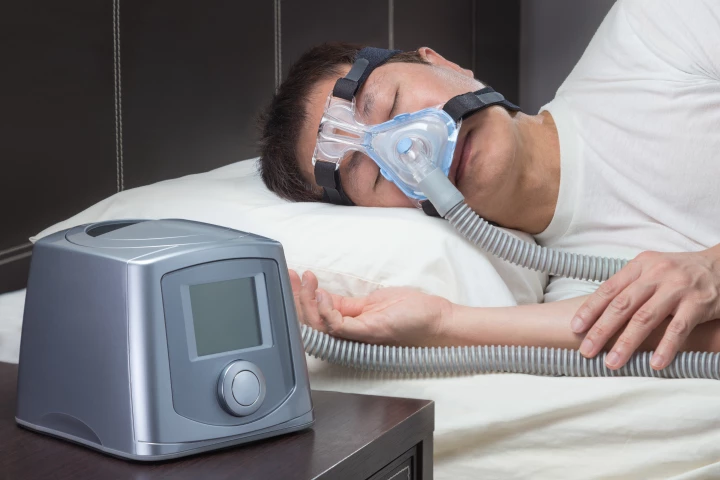Apnea
-
A huge international study has identified a weekly disturbance in one of the world’s most common sleep disorders, obstructive sleep apnea. Introducing “social apnea” – when the severity of the disorder jumps by nearly 20% on these specific nights.
-
An intriguing new study has found that symptoms of obstructive sleep apnea could be significantly reduced by regular sessions of blowing through a conch shell. Now, researchers are expanding the work, taking Triton's trumpet to test on a larger scale.
-
Obstructive sleep apnea can cause or contribute to high blood pressure, so a new study examined which sleep apnea treatments – a CPAP machine or a mouthguard that keeps the airways open – was more effective at lowering blood pressure.
-
Obstructive sleep apnea hugely impacts health and well-being, but as those with the condition know, treatment is very limited. Now, a new nasal spray has shown promise in alleviating the symptoms of the most common sleep-related breathing disorder.
-
A drug that treats excessive daytime sleepiness and obstructive sleep apnea could be repurposed to relieve debilitating symptoms of attention deficit hyperactive disorder, without the serious health risks that stimulants may hold for older adults.
-
While effective in treating sleep apnea, continuous positive airway pressure (CPAP) machines are intrusive and disruptive, which is why 50% of patients give up on using the life-saving devices. A new study shows why they might be worth the discomfort.
-
Heart failure is commonly complicated by sleep apnea, a co-morbidity that further reduces a person’s lifespan. A promising new drug could treat heart failure and sleep apnea by targeting the nervous activity that drives both.
-
New research has now zeroed in on the finer details of how weight gain and obesity can be a driver of sleep apnea, revealing that a reduction of fat in the tongue appears key to lessening the severity of its symptoms.
-
A new study reveals a connection between sleep apnea and increased levels of a toxic brain protein commonly associated with Alzheimer’s disease, bolstering the growing body of evidence linking sleep problems with the onset of neurodegenerative conditions.
-
For people can't tolerate one of the more popular ways to treat sleep apnea, a new chest implant that sends electrical pulses to a nerve in the tongue promises healthier rest, as reported in a new University of Pennsylvania (U Penn) study.
-
Researchers at the University of Washington (UW) have created an app they claim can detect sleep apnea with similar accuracy to available methods, potentially removing the need for expensive equipment and overnight hospital stays.
-
Night Shift is a new device designed to help people with sleep apnea and snoring issues. These problems are aggravated by sleeping on the back, so the device, which is worn at the back of the neck, vibrates and prompts wearers to move position.
Load More











